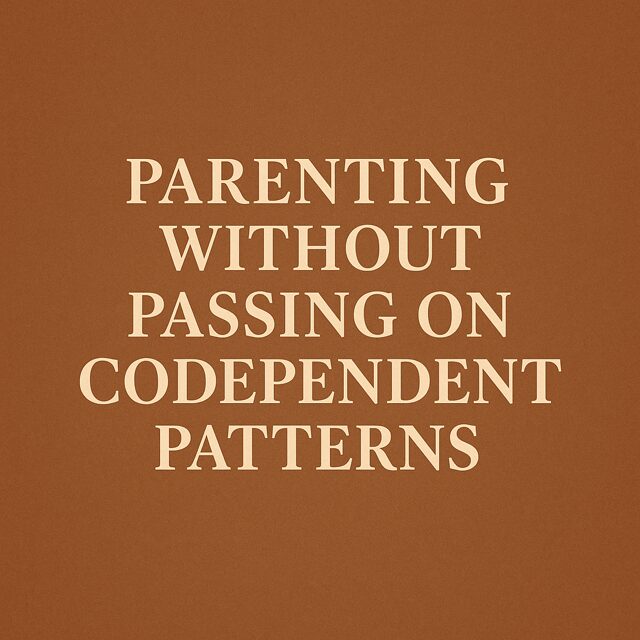As parents, we often set out with the best intentions—to love unconditionally, to protect, and to guide our children through life’s complexities. However, even with the most loving motives, we may unconsciously pass on emotional patterns we inherited ourselves. One such pattern is codependency, a dynamic where self-worth becomes tied to meeting others’ needs, often at the expense of our own.
If you grew up in a household where emotional caretaking, people-pleasing, or lack of boundaries were the norm, you might find yourself parenting from that same script. But the good news is this: awareness creates choice. With intentional effort, it’s entirely possible to raise emotionally healthy, autonomous children without repeating these cycles.
What Is Codependency in the Context of Parenting?
Codependency is often described as an excessive emotional or psychological reliance on a partner, typically one who requires support due to illness or addiction. In parenting, however, codependent behaviours can show up subtly, such as:
- Feeling responsible for your child’s emotions
- Struggling to set and enforce boundaries
- Over-functioning or rescuing your child from failure
- Needing your child to like or validate you
These patterns can inhibit a child’s ability to develop resilience, self-confidence, and emotional independence.
How to Break the Cycle
1. Heal Your Own Emotional Wounds
Parenting begins with self-awareness. Reflect on your upbringing and identify where codependent behaviours might have originated. Were you expected to manage a parent’s emotions? Were your own needs dismissed or minimised? Therapy can be a powerful space to process these experiences and learn healthier relational dynamics.
2. Model Boundaries and Self-Respect
Children learn more from what we do than what we say. When you set healthy boundaries with others—and with them—you’re teaching them that it’s okay to say “no,” prioritise self-care, and expect respect in relationships. Avoid overexplaining or justifying your limits. Instead, be firm and kind, showing that boundaries are not punishments but tools for connection and safety.
3. Allow Natural Consequences
It’s tempting to shield our children from discomfort, but rescuing them from the consequences of their actions can send the message that they are incapable. Letting your child experience age-appropriate consequences teaches accountability and builds resilience. This doesn’t mean abandoning them emotionally—it means supporting them without fixing everything for them.
4. Encourage Emotional Independence
Validate your child’s feelings without immediately trying to solve them. Phrases like, “That sounds really frustrating. What do you think might help?” show empathy while encouraging problem-solving. Resist the urge to absorb their emotions as your own—your role is to witness and support, not to carry.
5. Foster a Sense of Self
Help your child explore who they are outside of you. Support their interests, even if they differ from yours. Celebrate their individuality, encourage decision-making, and affirm their right to have feelings, opinions, and preferences.
The Long-Term Payoff
Raising emotionally healthy children is not about perfection—it’s about presence, consistency, and growth. When you model boundaries, emotional regulation, and respect for self and others, you empower your children to build relationships based on mutual respect rather than emotional dependence.
You also give them the gift of choice—the choice to engage in relationships with awareness, autonomy, and authenticity.
Ready to Break the Cycle?
If you recognise codependent patterns in your parenting and want support in shifting them, you’re not alone. I provide a safe, nonjudgmental space to explore your own patterns and develop tools to raise secure, confident children.
You don’t have to parent the way you were parented. You can choose a new path.
📞 Contact me today to schedule a free consultation and start your journey toward healthier parenting and deeper connection.
Andrea x

